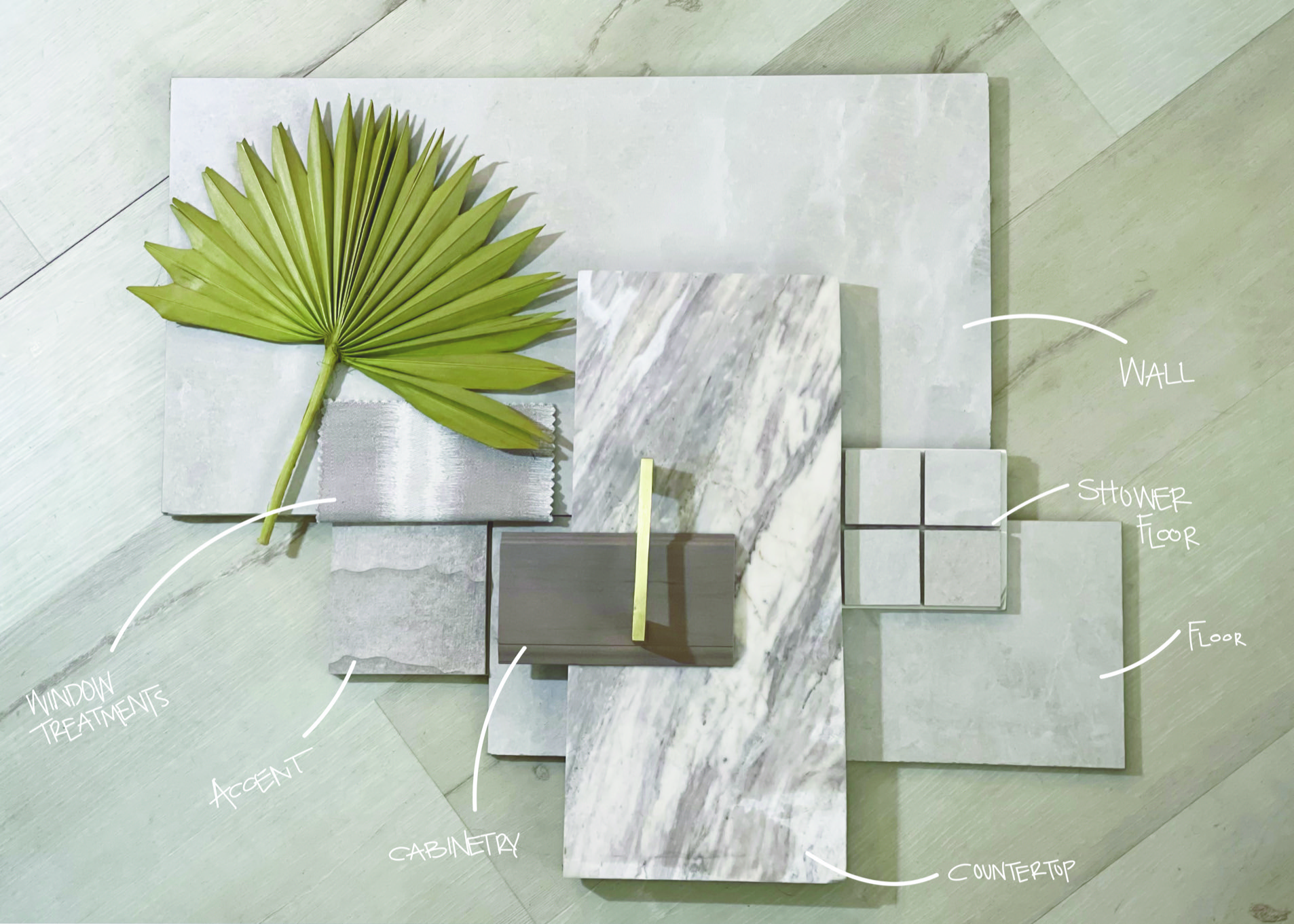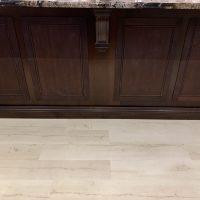
The Pros and Cons of Marble
Marble is having a moment these days. From countertops to backsplashes to floors, marble is high in demand. It’s natural beauty is often a show stopper to be sure. Our clients have often asked about marble and whether or not it’s a good idea to make such an investment in their project. When choosing kitchen countertops, marble still is the top choice. Let’s talk about the pros and cons of marble.
Pro: Show Stopper
Marble is eye candy no matter the age. In France where outdoor dining is the norm, the marble countertops patina over time and some love this look. Others like to have the timeless look appear undisturbed which requires sealing often. Either way, there is no debate how beautiful and unique marble is. In fact, in our experience, people want marble in their kitchen or bath just because it creates quite a stunning look. It’s also not hard to find a marble that compliments almost any design style. In our example, we are curating a look for a bathroom and marble is just the ticket.
Pro: Heat-Resistant
Believe it or not, marble is heat resistant. We don’t recommend to leave hot items on your marble countertop for extended periods, but technically you could do so because of its heat resistant quality. It would take a while to mar it, it can stand up well. Marble can also withstand temperature fluctuations without expanding or cracking, unlike wood. Tip: we recommend using tivets for your hot pots and pans regardless of your countertop material.
Pro: Durability
Since Marble is a natural stone it is more resistant to scratches and cracks than several other countertop materials. It is softer than granite which makes it ideal to incorporate great design elements like custom edges, during fabrication. However, tread with caution: be more careful in the kitchen if you want marble installed. Sharp knives can scratch the surface and heavy items can chip corners.
Tip: opt for honed marble. Because of its matte finish, it is more resistant to scratches, but can stain easier than polished marble.
Pro: Unique
Man made countertops try to imitate the look of marble with little success. Marble is created from dolomite or limestone naturally, and each piece is unique. The colors, hues and veining are determined where the marble originated, along with the mix of minerals in the original limestone. The veining in particular comes from the impurities in the limestone when the earth’s heat and pressure are applied to create the marble.
Con: Stains easily
This bears repeating. Marble is porous. It will absorb liquids easily. Wine, juice, oils and the like will penetrate deep into the stone making it nearly impossible to get out. Because of this tendency, it is a best practice to seal marble at installation and every three months thereafter. Another tip: Polished marble is coated which acts like a protectant making it less susceptible to stains. Unfortunately scratches can be visible because of its reflective surface.
Con: Price
Actually marble can be as expensive as you make it. While most marble is a high end material, there are options that are not beyond the budget for most homeowners. You just have to look for the simpler ones. It is more expensive to purchase marble that has higher quality and more veining, and these qualities are what sets marble apart from other natural stones in the first place if you are looking for that exquisite slab, be prepared to spend more. If you want to simply dress up your kitchen with a more common slab, you should expect to spend less.
If you’re thinking about installing marble-and need some help choosing the best option for your space-call us! We’d be happy to help!




